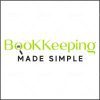To wrap up our series on business entity types, we’ll end with the LLC, or Limited Liability Company. LLCs combine the protections, and many advantages, of the C Corp with the flexibility of the sole proprietorship or partnership.
Like a corporation, LLCs are held to be a separate legal entity or “person”. They can enter contracts, create transactions, and own both personal and real property.
Setting up an LLC for your business also can protect your personal assets from business liability. If your business is sued, for example, you can’t be forced to use personal assets to pay for any judgements. Likewise, if you are sued personally, your business’s assets may also be protected. That protection can be lost, though
LLCs are owned by members rather than shareholders. LLCs can be owned by one member (“Single Owner LLC”) or by many members. Members can be individuals, partnerships, trusts, corporations, and there is no limit on the number of members. There are also fewer compliance requirements compared to corporations.
Members can manage the LLC themselves, or they can elect a management team to do so. Management of an LLC often resembles that of a corporation when it is “manager-managed.”
LLCs are taxed pass through entities, similar to S Corps, sole proprietorships, and general partnerships. Single owner LLCs often report business expenses on Schedule C of the 1040, as if they were sole proprietors.
Multiple member LLCs file a partnership return and distribute K1s to their members, which show how much of the income of the business is allocated to each member. For example, if one member owns 55% of the business and another owns 45%, then each member would have that percentage of the net income (revenue less expenses).
The members then include that income on their personal returns, and pay any taxes due on their portion of the LLC’s net income – including self employment tax, if applicable.
LLCs are a great choice of business entity, with the only real drawback being the cost of organization – they do cost more to organize than general partnerships or sole proprietorships.
Ready to form an LLC? We work with a number of fantastic business attorneys who can help you decide which organizational structure will work best for your business.
Donna Harris holds a BSci in Accounting and is the owner of Bookkeeping Made Simple.

Donna Harris
Owner
Donna Harris, BSci Accounting, MBA, founded Bookkeeping Made Simple with the understanding that small businesses is the heart of the American economy. After offering to do books for a friend who said he didn't have enough work to keep someone in the office 20 hours a week, she recognized the need for an efficient, online system. She has 20 years of bookkeeping and accounting experience and is excited to help small business owners achieve their goals. She enjoys spending time with her family and traveling whenever possible. She also loves reading, hiking, camping, cooking, yoga, and fitness. A huge believer in lifelong education, she is currently working on her master's in Accounting.
